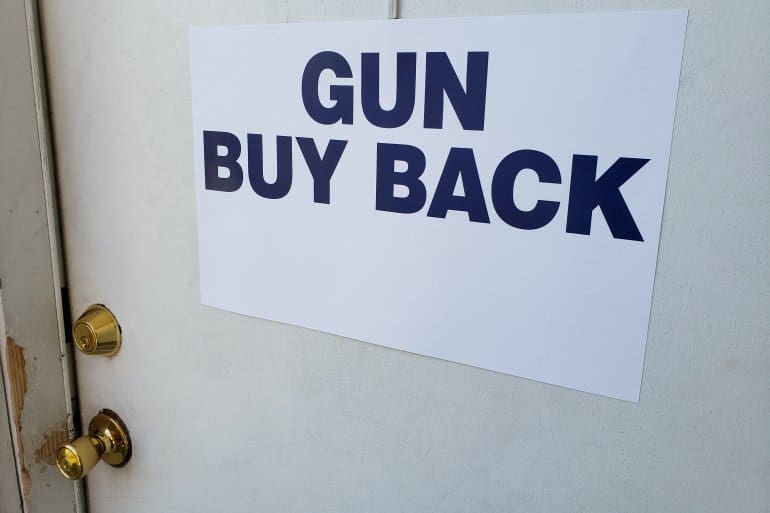A recent gun “buyback” in Ohio proves once again that politicians will do anything to make their constituents “feel” safer, whether they really are safer or not.
Over the weekend, Columbus leaders held a so-called “buyback,” which Mayor Andrew Ginther called an “overall safety strategy.” Gift cards of up to $750 were given in exchange for various firearms depending on the type and condition of the guns.
“If gun violence affects your family, then you have a pretty good sense of why this matters,” Ginther told WBNS TV. “We’re just grateful that people take their step up in this community and get rid of guns that they don’t need so we keep them out of the hands of kids and folks that shouldn’t have access to them.”
Deputy Chief Elrico Alli of the Columbus Police Department also got in on the media fanfare surrounding the latest “buyback.”
“We check their serial numbers, we check the weapons to make sure they are not connected with crimes,” Alli told the news station. “The important thing is we’re keeping them off the street. We work tirelessly to make sure that the city stays safe and we come up with new programs, new ways to keep people safe and keep people coming to work, live and play in our great city of Columbus.”
What neither Ginther or Alli mentioned—and I guess it’s possible that they aren’t even aware—is that such turn-in programs have been proven ineffective by unbiased researchers.
Before looking at that, however, let’s dissect the term “buyback.” Since the government never owned the firearms they are attempting to take possession of in the first place, they can’t actually buy them back. In fact, “compensated confiscation” is a much better term for these events. Of course, that doesn’t sound quite as good on a liberal mayor’s resumé as a gun “buyback” does.
Back to the reality check: A 2022 study looking at the effectiveness of so-called gun “buybacks, what the researchers called GBPs, and published by the National Bureau of Economic Research concluded that such “buybacks” have no measurable impact on reducing violent crime. The paper is titled “Have U.S. Gun Buybacks Misfired,” and was authored by Toshio Ferrazares, Joseph J. Sabia and D. Mark Anderson.
“Gun buyback programs (GBPs), which use public funds to purchase civilians’ privately-owned firearms, aim to reduce gun violence,” the paper’s abstract stated. “However, little is known about their effects on firearm-related crime or deaths. Using data from the National Incident Based Reporting System, we find no evidence that GBPs reduce gun crime.”
That said, the abstract continued even further with additional information that should put an end to the fallacy of such shenanigans once and for all.
“Given our estimated null findings, with 95 percent confidence, we can rule out decreases in firearm-related crime of greater than 1.3 percent during the year following a buyback,” the abstract concluded. “Using data from the National Vital Statistics System, we also find no evidence that GBPs reduce suicides or homicides where a firearm was involved.”
Deep within the analysis of the research are some other pretty interesting facts the trio discovered.
“GBPs may fail to reduce gun violence for a number of reasons,” the researchers wrote. “First, if the price city governments are willing to pay gun owners is less than the value of the firearm for most sellers, a relatively small number of firearms may be collected. Second, if criminals believe law-abiding citizens (and potential victims) are relinquishing their firearms, then they may be more willing to commit gun crimes following a GBP.”
The number of firearms collected by Columbus police this year hasn’t been announced, but Mayor Ginther is already promising to hold another one later this year or next. Since research proves these events don’t make anyone safer, maybe the upcoming “buybacks” will at least make Ginther feel like he’s doing something to fight violent crime.
Read full article here


